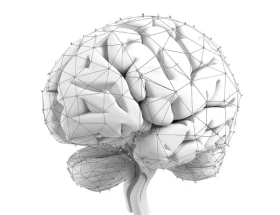Bredesen’s 2014 study introduces an innovative approach to addressing cognitive decline, particularly in conditions such as Alzheimer’s disease. This research explores a multi-modal therapeutic framework called Metabolic Enhancement for Neurodegeneration (MEND), highlighting its potential to improve cognitive abilities in early-stage cases. The findings are promising yet warrant further investigation to solidify their implications for broader applications.
Background
Alzheimer’s disease and cognitive impairment present complex challenges for medical and scientific communities. Historically, treatments have often focused on isolated pharmacological solutions, with limited success in reversing symptoms. Bredesen’s study builds on this context by proposing a more comprehensive therapeutic model that combines various interventions to address underlying causes rather than symptoms alone.
Key Insights
- Personalized Interventions: The MEND program is tailored to individual patients, combining dietary adjustments, supplements, lifestyle changes, and pharmacological support. This approach recognizes the multifactorial nature of neurodegeneration.
- Preliminary Outcomes: Among ten patients, nine demonstrated cognitive improvements within 3-6 months. This includes six individuals who were able to resume professional activities, emphasizing the program’s potential impact on quality of life.
- Limitations Highlighted: The study acknowledges its small sample size and the lack of improvement in a patient with late-stage Alzheimer’s, suggesting the need for early intervention and larger-scale trials.
Significance
This study emphasizes the potential of combining multiple treatment strategies to combat complex diseases like Alzheimer’s. The results challenge the conventional reliance on single-drug therapies, advocating for a holistic approach that integrates lifestyle and pharmacological measures. While the findings offer hope, they also underscore the need for rigorous validation through larger and more diverse studies.
Future Directions
Further research should focus on expanding the sample size and exploring the long-term effects of the MEND program. Understanding the specific mechanisms driving the observed improvements could also refine the therapeutic framework. Additionally, identifying the program’s applicability across different stages of cognitive decline would be valuable for tailoring interventions.
Conclusion
Bredesen’s study offers a glimpse into a promising therapeutic strategy for reversing cognitive decline. By addressing the complexity of neurodegenerative diseases through personalized and integrated treatments, it paves the way for more adaptive approaches in the future. While preliminary, the findings highlight the importance of continued innovation and collaboration in tackling cognitive health challenges.
Reference:
Bredesen, D. E. (2014). Reversal of cognitive decline: a novel therapeutic program. Aging (Albany NY), 6(9), 707-17. https://doi.org/10.186/j.cogdecline2014/07-17










